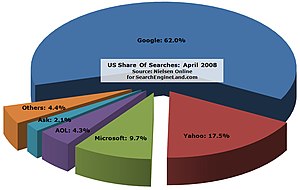Just because I published my first novel as an
eBook doesn’t mean I’m thinking or hoping that the print book will disappear from the face of the known universe. I love print books, have a lovely little library of my favorites, mostly hardbound, and I read them--often. I’m also privileged to have good friends who loan me books to read.
I’m also not thinking or hoping that the publishing industry fades into the sunset. The inherent value of this media is obvious. Publishers have editors who find typos, grammatical errors, inconsistencies, talented cover artists, typesetters who know the difference between an inch mark and a curly quote, all of which, the independents probably can’t afford to hire. This leaves the self-publisher working within the boundaries of their own knowledge and education--and sometimes (probably most of the time) that isn’t enough to get the job done right.
I know, for example, I can’t proofread my own words. In fact, two people read the finished product before
The Mine went live and while making their edits they presented to me I found two additional mistakes in the manuscript. (And we all know, most word processors fall short when it comes to recognizing grammatical errors and even certain typos.)
Publishers also handle all the accounting, the royalties, even (although not so much anymore), the publicity for their authors.
The biggest problem I see regarding publishers is their reluctance to take on new authors. They prefer the big name (celebrity, politician, guru) and established (published and successful) names. Emerging writers stand a miniscule chance of ever getting their work to a publishing house.
Then, that no-name writer has to try to enter the hallowed realm of the agent with a spot-on query letter and breathless hopes that the letter, the genre, and the sample chapters hit home enough to whet the agent’s appetite.
Now agents apparently have very little time to commit to unsolicited requests.
How is it, I wonder, that I can read a book in a day but agents can’t read a query letter for months or more?
When I was polishing up another novel, I sent one query letter by email to an agent. After months without a response I fired off a second letter to another agent who took three months to proffer a rejection message. A third attempt brought an almost instant “No thanks, not for me.”
If an agent does take on an unknown author, there could be a year or more lapse of time between a sale and the actual appearance of the work.
These observations (some could call them complaints) are so old they might even be considered tradition by now, but they make up the hurdles a novelist or non-fiction author has to scale in hopes of seeing his or her work in print.
Of course I’d like to see my books on the shelves of bookstores that still exist but I prefer not to go to my grave while waiting.
However, I love the look and feel of a hefty novel. I like sitting on the porch enjoying a glass of iced tea and a good story. I appreciate the way the words look on paper. So I will continue to support the authors who have been fortunate enough to make it in this tough field.
I will buy the hard covers I want to keep. I will buy the paperbacks I want to read. I will download whatever suits my fancy.
I’m sure there are a lot of other folks who, like me, will buy tangible books for their own personal tastes and reasons, for a long time to come – if publishers do a little trip into the present and realize they must make some changes, I figure they can last a long time as well.
 How important is your blog? Do you keep a backup of your posts? Would you mourn the loss of all your content?
How important is your blog? Do you keep a backup of your posts? Would you mourn the loss of all your content? 




































